GCSE History Years 10 & 11
Specification
AQA - The specification and assessment structure can be found at the link: https://www.aqa.org.uk/subjects/history/gcse
What will I study?
The GCSE History content comprises the following elements:
- One period study
- One thematic study
- One wider world depth study
- One British depth study including the historic environment.
Paper 1: Understanding the modern world
Section A: Russia 1894-1945: Tsardom and Communism
Section B: Conflict and Tension in Asia, 1950-1975
Paper 2: Shaping the nation
Section A: Britain: Health and the People: c1000 to present day
Section B: Norman England c1066-c1100
What skills and qualities are required?
- Analytical Skills.
- Communications skills – both verbal and written. A good command of the English language is particularly important.
- Evaluation skills.
- Organisational skills.
- Initiative.
- Independent learning and research skills.
- Working with others.
How will I learn?
You will learn through reading, writing, discussions, listening, analysing data, developing presentation skills and group work.
Skills you’ll develop through studying History
- Written and oral communication.
- Logical thinking and decision making.
- Analysis.
- Research and deciding between relevant and irrelevant information.
- Understanding how a complex series of events interact.
- Interpretation, distinguishing between cause and consequence, identifying changes.
- Questioning, attention to detail and using evidence.
- Evaluating.
- Balancing strengths and weaknesses and drawing conclusion.
How will I be assessed?
Both Paper One and Paper Two will be assessed by written examination at the end of Year 11. Both exam papers are 2 hours long and are both worth 84 marks.
Where could it lead?
Employers and universities really value History as it is viewed as a “rigorous” subject which provides students with a wide range of useful skills. The strengths of History as a qualification lie in the possibilities and opportunities it opens up. Employees and universities alike will appreciate the variety of transferable skills provided through study of the subject, chiefly the ability to understand and analyse issues and events to a high level.
Additional Requirements/Information
The syllabus aims to build on Key Stage 3 and to lay a foundation for advanced study. A GCSE in either Geography or History is necessary to achieve the English Baccalaureate.
Year 10
From Tsardom to Communism: Russia 1914-24; Stalin’s Dictatorship: USSR 1924-41; The Korean War 1950 and The USA and Vietnam: failure abroad and at home, 1954-75.
| Topic | Further details about the topic | Skills | |
|---|---|---|---|
| Autumn Term | |||
| 1 | Tsardom to Communism |
The collapse of Tsar’s rule. Bolshevik’s seizure of power. Lenin |
Causation, consequence, significance, change and continuity, interpretation analysis and evaluation. |
| 2 | Stalin’s Dictatorship |
How Stalin became dictator. How Stalin enforced his dictatorship. Evaluation of Stalin’s economic policies. |
Causation, consequence, significance, change and continuity, interpretation analysis and evaluation. |
| Spring Term | |||
| 1 |
The Korean War The USA and Vietnam |
The causes and events of the Korean War. Evaluation of guerrilla tactics. Media coverage of the Vietnam War in the USA. |
Causation, consequence, change and continuity, source analysis, significance. |
| 2 | The USA and Vietnam |
Evaluation of the USA’s attempts to end the Vietnam War. |
Causation, consequence, change and continuity, source analysis, significance. |
| Summer Term | |||
| 1 | Norman Conquest and Life under the Normans |
Causes and events of the Norman invasion. Feudalism and government role. Economic and social changes. |
Causation, consequence, significance, change and continuity, interpretation evaluation. |
| 2 |
Norman Church and Monasticism Historic Environment |
The Church. The Monasteries. Norman buildings. |
Causation, consequence, significance, change and continuity, interpretation evaluation. |
Year 11
Norman England and Health and Medicine 1000-Present Day
| Topic | Further details about the topic | Skills | |
|---|---|---|---|
| Autumn Term | |||
| 1 |
Norman Church and Monasticism Historic Environment |
The Church. The Monasteries. Norman buildings. |
Causation, consequence, significance, change and continuity, interpretation evaluation. |
| 2 | Health and Medicine |
1000-1750. |
Causation, consequence, change and continuity, source analysis, significance. |
| Spring Term | |||
| 1 |
Health and Medicine |
1750-1900. |
Causation, consequence, change and continuity, source analysis, significance. |
| 2 | Health and Medicine | 1900-Present day. |
Causation, consequence, change and continuity, source analysis, significance. |
| Summer Term | |||
| 1 | Revision |
Revision |
Revision |
Assessments
| Resources | Topic | Type of assessment |
|---|---|---|
| CAT 1 | Tsardom to Communism | Examination Paper |
| CAT 2 | The USA and Vietnam | Examination Paper |
| CAT 3 | Norman England | End of Year Examination |
| CAT 4 | Norman England | 16 mark Question |
| CAT 5 | Mock Examination | Questions set from a previous exam paper |
| CAT 6 | Health and Medicine | Questions set from a previous exam paper |
Main Resources
| Resource | Details |
|---|---|
| Text books |
AQA GCSE History: Understanding the Modern World - £17.99 AQA GCSE History: Health and the People: Amazon.co.uk: Wilkinson, Alf: 9781471864216 AQA GCSE History: Norman England, 1066-1100: Amazon.co.uk: Clarke, Helena: 9781471863424: Books |
|
Recommended Reading |
William I by Marc Morris Vietnam by Max Hastings Blood and Guts, a short history of medicine by Roy Porter |
| Recommended websites |
Enrichment opportunities
|
Educational visits |
Thackray Medical Museum, Leeds |







